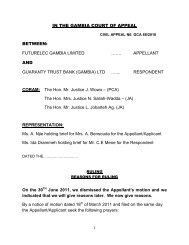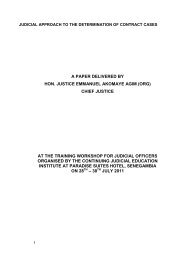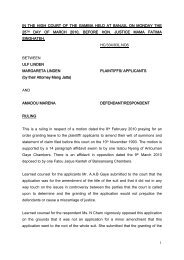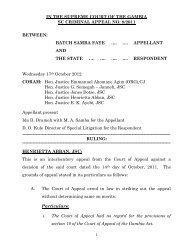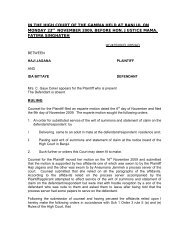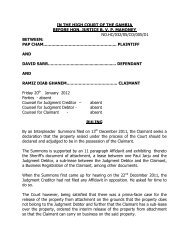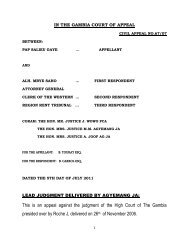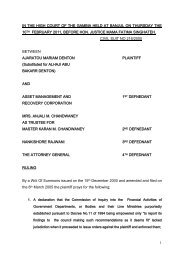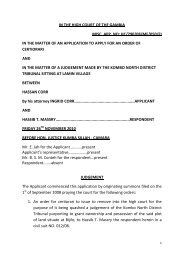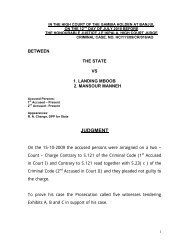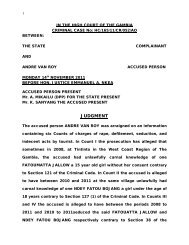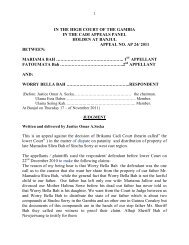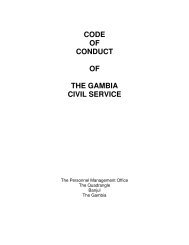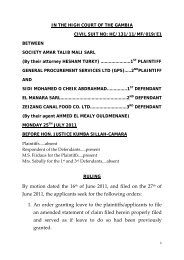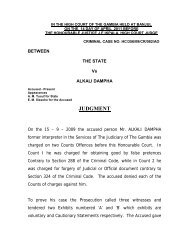Preface
Preface
Preface
You also want an ePaper? Increase the reach of your titles
YUMPU automatically turns print PDFs into web optimized ePapers that Google loves.
109<br />
criminal justice of common law. The procedure is that the judge or a Cadi shall ask<br />
each of the parties or litigants thus:<br />
Meaning: Do you have more grounds or evidence to give. As earlier stated<br />
the answers of the parties shall be attested to by two credible witnesses before the<br />
Cadi proceed to judgment. The procedure is a condition precedent to a valid<br />
judgment. Where the proceeding of a court is lacking this fundamental procedure is<br />
held to be a nullity and liable to be set aside on appeal. See NASIRU ALHAJI<br />
MUHAMMDU VS HARUNA MUHAMMADU & 1O OTHER (2001) 6 NWLR<br />
(Pt. 708)104. In SULEIMAN VS ISYAKU & 6 ORS (2006) 3 SLR, Pt 1, it was<br />
held, per Wali, JSC thus:<br />
“It is a mandatory principle of Islamic law that no one shall be<br />
condemned without being afforded the opportunity of being heard. At<br />
the end of the parties’ case, the court shall ask them whether they<br />
have anything more to say before the court pronounces its judgment.<br />
This is what is called Al-Izar, something having similarity with<br />
allocutus.”<br />
On the legal consequences of failure to observe the procedure of I’izar<br />
Muntaka Coomasie, JCA (as he then was) in HAKIMIN BOYI UMAR VS<br />
A’ISHA BAKOSHI (2006) 3 SLR pt1 P.80, put it succinctly thus:- “I must say<br />
without mincing words that it is wrong to condemn a party unheard. Both the<br />
common law and Sharia law protects the principle of hearing the other party. It<br />
was clearly stated in so many words that Al’Izar must be announced before the<br />
decision. The judge must ask the party whether he has anything more to say



